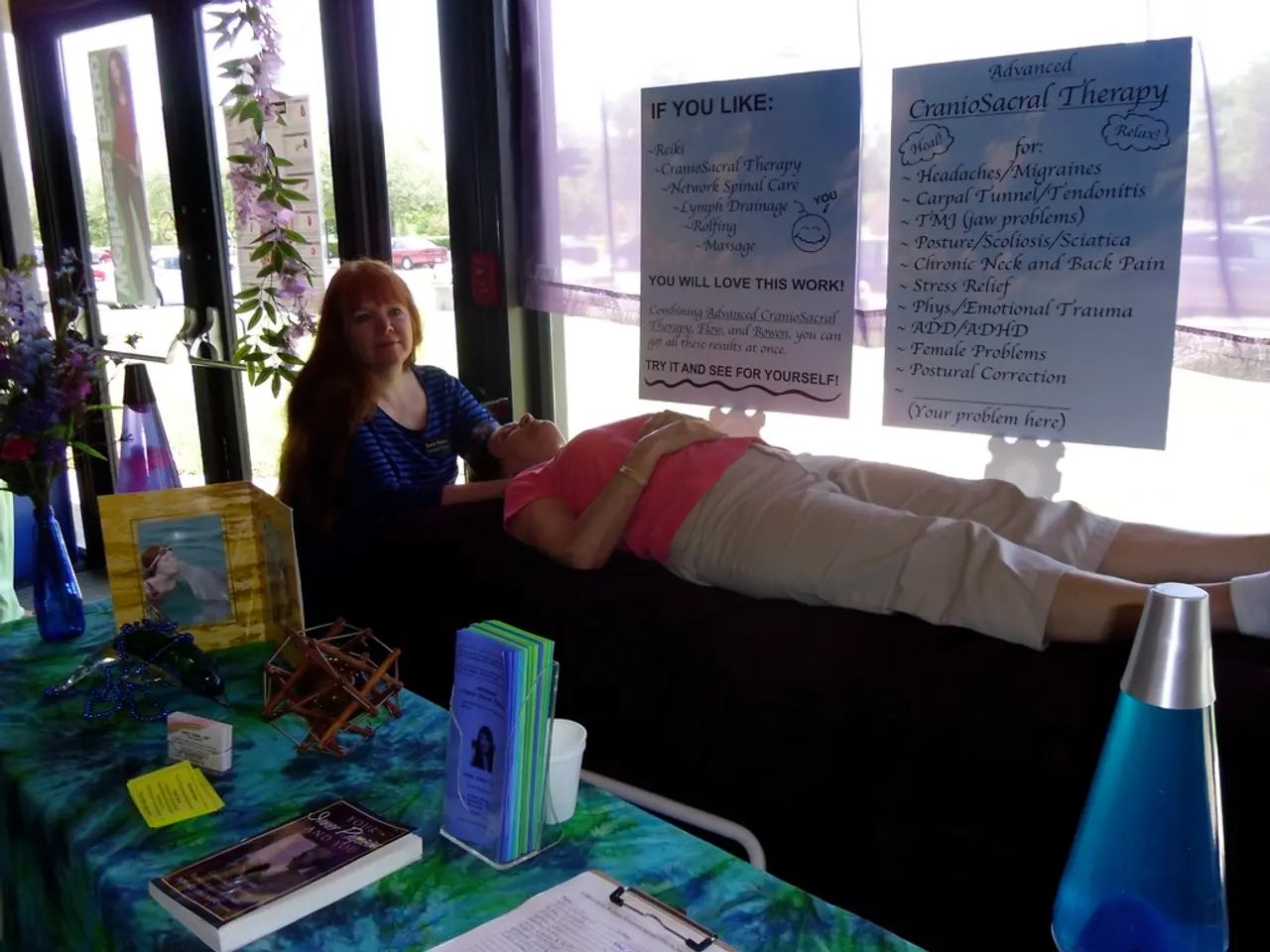Mental Health System's Flaws Highlighted Through Anup Nair's Case, Demonstrating the Urgent Need for Reform
**Strategies for Community Awareness and Intervention to Prevent Unnoticed Cases of Prolonged Isolation Due to Complex Grief in Urban Settings**
In a densely populated city like Navi Mumbai, it's easy for individuals like Anup Kumar Nair to slip through the cracks and remain unnoticed for extended periods. Nair, a 55-year-old man, isolated himself in his flat for three years, a reflection of an internal collapse with roots in deep emotional and mental trauma.
Nair's case, marked by prolonged absence from social activities, neglect of personal hygiene, and visible emotional numbness, highlights the deep psychological impact of unresolved and complicated grief. His situation was due to the loss of multiple family members over the years, including his brother's suicide 20 years ago and the recent deaths of both parents.
The case also underscores the bystander effect or the diffusion of responsibility, a social phenomenon where individuals feel a decreased sense of personal responsibility to act or help, believing someone else will intervene. However, it's crucial to increase community empathy and awareness of signs of mental distress to prevent cases like Nair's.
To address this issue, communities can implement several strategies.
## Community Awareness
### Education and Awareness Campaigns Organize public workshops, seminars, and community events to educate residents about the signs of complex grief and prolonged isolation. Utilize local media, such as newspapers and radio stations, to broadcast messages about grief awareness and support services available in the community.
### Social Media and Online Platforms Leverage social media platforms to create awareness campaigns and share resources on managing grief and isolation. Develop online forums or support groups where individuals can connect with others experiencing similar challenges.
## Community Intervention
### Supporting Networks #### Social Support Groups Establish face-to-face support groups for individuals experiencing grief, providing a safe space for them to share their feelings and connect with others. Encourage online support groups to reach a broader audience, especially those who might be isolated due to their urban environment.
#### Community Events Host community events that foster social connections and provide opportunities for individuals to engage in activities that promote healing and well-being. Organize community outings or volunteer opportunities to help individuals gradually reintegrate into social life.
### Practical Assistance #### Access to Mental Health Services Ensure that mental health resources, such as counseling and therapy services, are accessible and affordable for community members. Promote digital mental health tools and apps to support individuals who may prefer online interventions.
#### Training Community Leaders Train community leaders, volunteers, and local professionals in recognizing signs of complex grief and providing support. Develop policies that accommodate bereavement needs, allowing individuals time for grieving without risking employment or social penalties.
## Healthy Coping Mechanisms ### Physical Activity and Lifestyle Promote physical activity through community fitness programs or walking groups. Encourage healthy lifestyle practices, such as a balanced diet and regular sleep routines, to help manage stress and inflammation related to grief.
### Mindfulness and Creative Expression Offer mindfulness workshops or classes focused on relaxation techniques and emotional regulation. Encourage creative expression through art, writing, or music as a way to process grief and honor memories.
By implementing these strategies, communities can effectively address prolonged isolation due to complex grief, fostering supportive environments that promote healing and well-being for all residents. For individuals like Nair, early intervention and access to psychological rehabilitation, including Complicated Grief Therapy, Cognitive Behaviour Therapy, Social Skills Training, and even Occupational Therapy, can make a significant difference in their recovery.
In a bid to prevent undetected cases of prolonged isolation due to complex grief, it's essential for communities to focus on both education and intervention strategies. To instill awareness, cities like Navi Mumbai can organize public events, utilize social media, and educate residents about the link between mental health, health-and-wellness, and science, particularly the signs of complex grief and suitable coping mechanisms. Additionally, communities should establish support networks, provide access to mental health services, and train leaders to recognize signs of mental distress, thus fostering a supportive environment that promotes healing and well-being for all residents, aiding in the recovery of individuals like Anup Kumar Nair.








